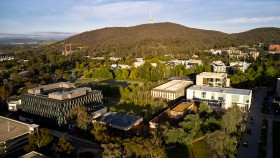World's largest study shows carbon pricing reduces emissions
ANU Media Release
There is strong evidence that carbon pricing works to strongly reduce emissions, according to the world's largest study on the issue published by researchers at The Australian National University (ANU) and Macquarie University today.
The study examined carbon emission trends from 142 countries since the commencement of carbon pricing in the 1990s. Among the countries examined, 43 had a carbon price of some type by the end of the study period.
The study shows that countries with carbon prices on average have annual growth rates of carbon dioxide emissions from fossil fuel combustion that are about two percentage points lower than countries without a carbon price.
"On average, carbon dioxide emissions fell by two per cent per year over the period 2007-2017 in countries with a carbon price and increased by three per cent per year in the others," co-author Associate Professor Paul Burke said.
"This is a five percentage point difference. Our study finds that about two percentage points appear to be due to the carbon price and the remainder is attributable to other factors - including improving technologies, renewable energy policies and differences in fuel tax rates.
"Using a variety of estimation approaches, we have found a statistically significant link between the adoption of a carbon price and reduced growth in carbon emissions."
Study co-author Professor Frank Jotzo said the findings provided a "crystal clear" message to governments all over the world - carbon pricing must be part of their plans to reduce emissions.
"The message to governments could not be clearer: carbon pricing works, and typically to great effect.
"Australia's emissions from fossil fuel combustion fell during 2012-14 when the carbon pricing mechanism was in place, then rose again and flatlined to 2019."
"While a well-designed approach would include complementary policies such as support for low-carbon research and development, carbon pricing should ideally be the centrepiece of any serious emissions reduction strategy in a market-oriented economy," Associate Professor Burke said.
"To get on a low-carbon development model, the evidence suggests that putting a price on carbon is a highly effective way to go."
The study was also co-authored by former ANU PhD researcher Dr Rohan Best, who is now based at Macquarie University.
"Putting a price on carbon should reduce emissions, because it changes relative prices in favour of cleaner options. The economic theory is rock solid. And now we have found strong evidence that the theory works and that you can see this process in practice across many countries around the globe," Dr Best said.
The research is published in the journal Environmental and Resource Economics.
Open-access version: https://ccep.crawford.anu.edu.au/publication/ccep-working-paper/16742/carbon-pricing-efficacy-cross-country-evidence
Both Associate Professor Bourke and Professor Jotzo are members of the Energy Change Institute and the ANU Grand Challeng: Zero-Carbon Energy for the Asia-Pacific.
Prof. Jotzo is the Director of the Centre for Climate and Energy Policy in the Crawford School of Public Policy, and Assoc Prof Burke a Research Associate.











